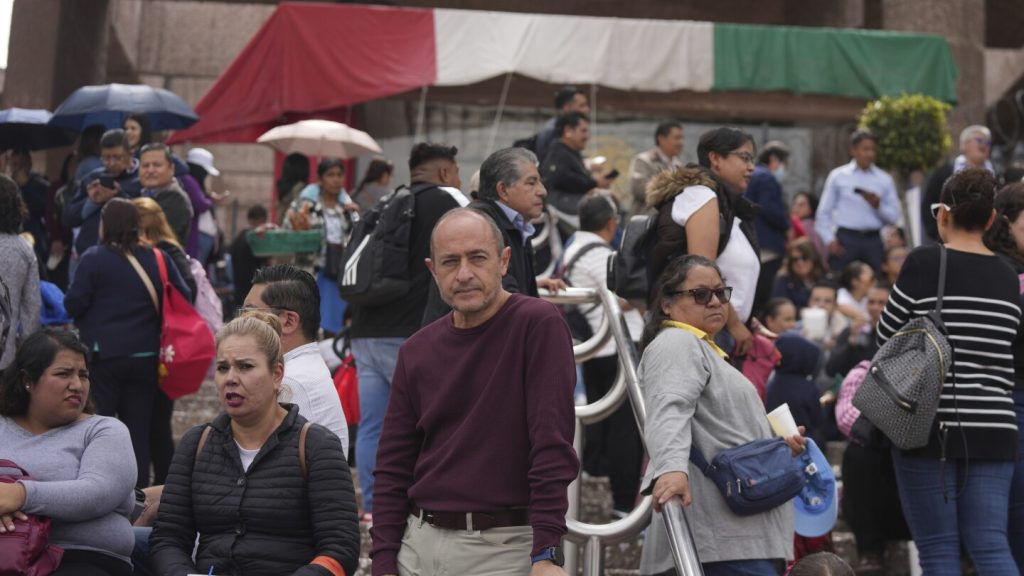Employees at Mexico’s federal courts have initiated a strike to protest a proposed judicial overhaul by President Andrés Manuel López Obrador. The measures would require all judges to stand for election, threatening the working conditions, benefits, and salaries of court employees. The strike is in response to the perceived infringement on checks and balances in Mexico, raising concerns about the future of democracy in the country. Unionized court workers have put chains and locks on courthouse gates and plan to continue the strike until the president drops his proposals. The populist leader has been at odds with the judiciary, accusing many judges of corruption and seeking to reform the system to allow anyone with a law degree to become a judge.
Protesters in Mexico City, including federal judge Argelia Román Mojica, have criticized the proposed changes as an attempt to undermine judicial power and violate the separation of powers. López Obrador’s reforms would enable individuals with minimal legal experience to be elected as judges, a departure from the current system where judges and court employees gain expertise over time. The president has been vocal about his disdain for certain judges and the judiciary, often publicly clashing with them over rulings he disagrees with. Critics of the reforms argue that they are designed to weaken the independence of the judiciary and eliminate the checks and balances on presidential powers. The strike has disrupted court operations in Mexico City, with protesters demanding judicial independence and impartial justice.
The strike by federal court employees has caused disruptions in Mexico City, with some Mexicans being turned away from their court appointments. The strike organizers are also in talks with state courts to expand the protest, with plans for an indefinite strike in defense of judicial independence. Court workers, like Ana Paola Cid, fear that the proposed reforms would hinder their career progression, as years of study and experience are typically required to become a judge. Despite the demonstrations, President López Obrador maintains that the reforms are not aimed at harming workers and insists that they will benefit from the changes. He believes that court employees have been misled about the impact of the reforms on their wages and argues that the measures are necessary to improve the justice system in Mexico.
The ongoing conflict between López Obrador and the judiciary reflects a broader clash over the balance of power in Mexico. The president’s disdain for independent regulatory bodies and oversight agencies has raised concerns about the erosion of democratic norms in the country. The proposed judicial reforms, which include making judges stand for election and reducing the experience required to become a judge, have intensified the rift between the executive and the judiciary. Critics view these changes as an attempt to consolidate power in the hands of the president and undermine the independence of the legal system. The strike by court employees is a response to what they see as a threat to democratic principles and the rule of law in Mexico.
As the strike continues, the government and court employees remain at an impasse over the proposed judicial reforms. The future of the Mexican judiciary hangs in the balance, with the outcome of the strike likely to shape the trajectory of legal and political developments in the country. The protests highlight the importance of an independent judiciary as a safeguard against potential abuses of power and government overreach. The conflict between López Obrador’s administration and the judicial branch underscores the challenges of preserving democratic institutions and ensuring the separation of powers in Mexico. The strike serves as a reminder of the ongoing struggle for justice, accountability, and transparency in the country’s legal system.


